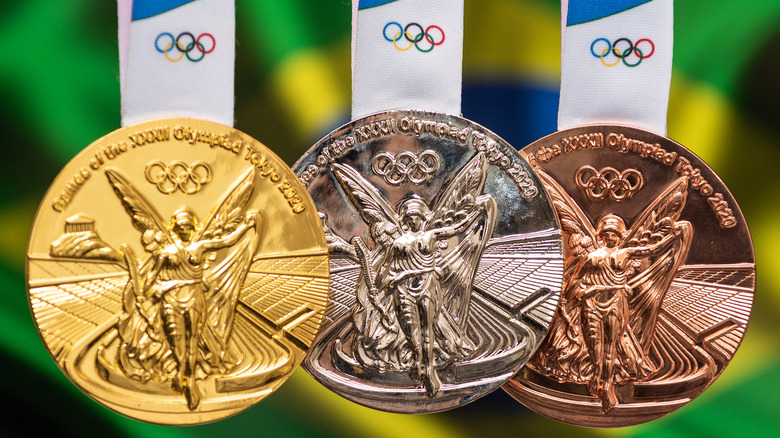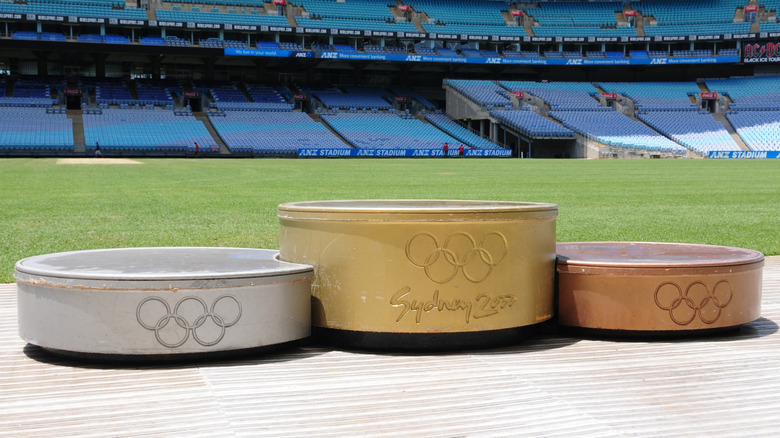Here's Why A Silver Medal Is Actually Worse Than A Bronze
Everyone knows that when it comes to the Olympics, first place gets the gold medal, second place gets the silver, and third place gets the bronze. It therefore stands to reason that the happiest Olympic champions are the winners who took home the gold, followed by silver medal winners as the second-happiest Olympians, making bronze medalists the least happy of the three groups, right?
Not so fast. In 2016, Laura Kudrna of the London School of Economics and co-authors Georgios Kavetsos, Chloe Foy, and Paul Dolan published a paper for the Centre for Economic Performance's CEP Discussion Paper series, titled "Without My Medal on My Mind: Counterfactual Thinking and Other Determinants of Athlete Emotions." The authors examined the "counterfactual thoughts" of Team Great Britain medalists from the 2012 Olympic and Paralympic Games, held in London, England. Counterfactual thoughts here refer to people thinking "what could have been" concerning their athletic performances, which can interfere with how their actual achievements make them feel.
It's better to lose by a lot than to just miss winning the gold
Findings from the Centre For Economic Performance paper indicate that silver medalists were less happy than bronze medalists. The athletes who came in second place were affected by thinking about how they could have won the gold, while those in third place felt happy to be on the podium at all. In fact, athletes who won gold and bronze medals appeared happier the better they performed, but silver medalists appeared less happy the closer they were to winning the gold.
As reported by the Daily Mail, the study involved 756 volunteers studying the reactions and facial features of British Olympians from footage of the 2012 London Olympics, then rating the athletes' apparent happiness on a scale of one to 10. Gold medalists were given an average score of 6.65, while silver medal winners came in at 5.92 — less than the bronze medalists' average of 6.06.
Particular examples of this phenomenon included cyclist Victoria Pendleton, who came in second behind her close rival Anna Meares, and rowers Mark Hunter and Zac Purchase, who just barely lost the gold to the Danish team and looked "visibly distraught." According to paper co-author Georgios Kavetsos of London's Queen Mary University, "If you cannot win, then our study suggests you might feel better by taking your foot off the gas and coming in second by quite a margin and perhaps even coming in third."

